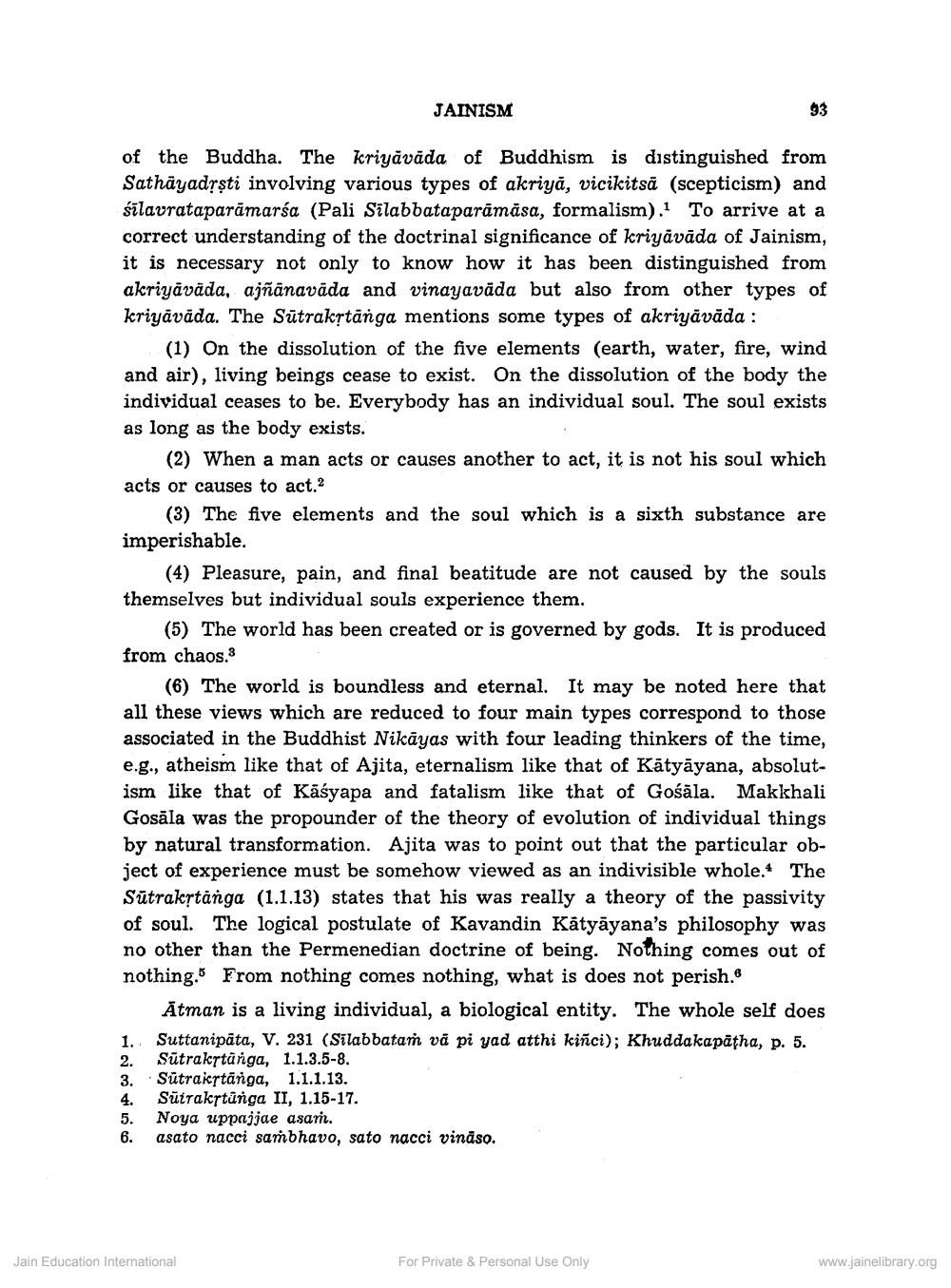Book Title: Fundamental Principles of Jainism Author(s): B C Law Publisher: Z_Vijay_Vallabh_suri_Smarak_Granth_012060.pdf View full book textPage 7
________________ JAINISM of the Buddha. The kriyavāda of Buddhism is distinguished from Sathayad?ști involving various types of akriya, vicikitsă (scepticism) and silavrataparāmaría (Pali Silabbataparāmása, formalism). To arrive at a correct understanding of the doctrinal significance of kriyāvāda of Jainism, it is necessary not only to know how it has been distinguished from akriyāvada, ajñanavāda and vinayavāda but also from other types of kriyāvāda. The Sūtrakṛtānga mentions some types of akriyavāda: (1) On the dissolution of the five elements (earth, water, fire, wind and air), living beings cease to exist. On the dissolution of the body the individual ceases to be. Everybody has an individual soul. The soul exists as long as the body exists. (2) When a man acts or causes another to act, it is not his soul which acts or causes to act.2 (3) The five elements and the soul which is a sixth substance are imperishable. (4) Pleasure, pain, and final beatitude are not caused by the souls themselves but individual souls experience them. (5) The world has been created or is governed by gods. It is produced from chaos. (6) The world is boundless and eternal. It may be noted here that all these views which are reduced to four main types correspond to those associated in the Buddhist Nikāyas with four leading thinkers of the time, e.g., atheism like that of Ajita, eternalism like that of Kātyāyana, absolutism like that of Kāśyapa and fatalism like that of Gośāla. Makkhali Gosāla was the propounder of the theory of evolution of individual things by natural transformation. Ajita was to point out that the particular object of experience must be somehow viewed as an indivisible whole. The Sūtrakstanga (1.1.13) states that his was really a theory of the passivity of soul. The logical postulate of Kavandin Katyāyana's philosophy was no other than the Permenedian doctrine of being. Nothing comes out of nothing. From nothing comes nothing, what is does not perish. Ātman is a living individual, a biological entity. The whole self does 1. Suttanipāta, V. 231 (Silabbatam vā pi yad atthi kiñci); Khuddakapātha, p. 5. 2. Sūtrakytåriga, 1.1.3.5-8. 3. Sūtrakrtānga, 1.1.1.13. Sūtrakstūnga II, 1.15-17. 5. Noya uppajjae asar. asato nacci sambhavo, sato nacci vinaso. Jain Education International For Private & Personal Use Only www.jainelibrary.orgPage Navigation
1 ... 5 6 7 8 9 10 11 12 13 14 15 16 17 18 19 20 21 22 23 24 25 26 27 28 29 30 31 32 33 34 35
